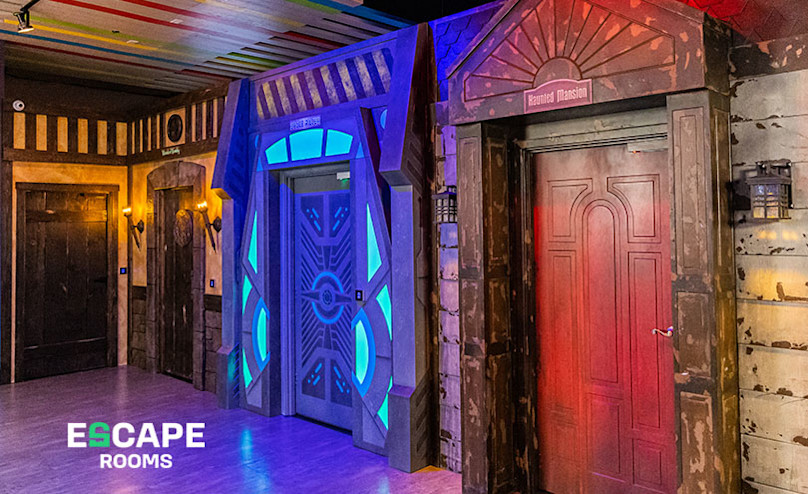Fun and Challenging Escape Room-- Plan Your Following Experience
Fun and Challenging Escape Room-- Plan Your Following Experience
Blog Article
Group Techniques: How to Collaborate Successfully in a Getaway Area
Browsing the complexities of an escape space requires more than simple excitement; it calls for a well-coordinated strategy grounded in clear interaction, calculated function assignments, and skilled time administration. Groups should actively pay attention to every member's insights, designate functions that align with private staminas, and maintain routine check-ins to make certain emphasis and stop redundancy. By fostering an atmosphere that values cohesion and flexibility, groups can significantly enhance their performance and success prices. The subtleties of these techniques can transform the experience, but how specifically can they be implemented to make best use of the potential for success?
Establish Clear Communication

To help with clear interaction, it is important to assign a main factor of get in touch with for information dissemination. Short, concentrated updates from each group participant can maintain the team informed without frustrating them with details.

Assign Roles Tactically
While clear communication establishes the foundation for efficient teamwork, appointing functions strategically ensures that each team participant's strengths are utilized efficiently. In an escape space scenario, the time-sensitive and complicated nature of difficulties demands a well-organized approach to job delegation. By recognizing and leveraging private competencies, teams can optimize their problem-solving capacities and enhance general performance.
First, evaluate the one-of-a-kind skills and features of each individual. Somebody with an eager eye for detail might stand out in discovering surprise objects, while a rational thinker can be better matched to solving challenges. It's just as vital to have a leader that can oversee progress, handle the timeline, and make definitive telephone calls when required. This duty frequently requires strong organizational and social skills.
2nd, make sure that functions are adaptable and adaptable. As brand-new difficulties emerge, the group should be able to pivot, reapportioning tasks as needed. This flexibility helps keep energy and stops bottlenecks that can happen because of stiff role jobs.
Inevitably, a strategic method to role task not just takes full advantage of the strengths of each staff member however also promotes a cohesive setting, driving the group in the direction of a successful retreat.
Utilize Diverse Abilities
Identifying and using the diverse abilities within your group can dramatically elevate your efficiency in an escape room. Each staff member brings distinct staminas to the table, and successfully leveraging these capacities can expedite problem-solving and enhance overall view performance. For instance, a staff member with strong logical skills could succeed at decoding complicated codes or patterns, while another with keen observational abilities might promptly detect surprise clues that others could ignore.
Encourage group participants to articulate their understandings and concepts quickly, making sure that all possible remedies are considered. Furthermore, assigning tasks that align with each member's staminas can avoid bottlenecks and make sure that progress is continuous.
Moreover, variety in abilities frequently translates to diversity in believing styles, which is indispensable in an escape area setting. While some obstacles might call for logical thinking and accuracy, others could you could look here gain from creative and side reasoning. By acknowledging and leveraging this diversity, groups can address a broader series of difficulties a lot more properly, consequently boosting their chances of a successful getaway.
Manage Time Effectively
Determine noticeable problems and divide tasks based on team members' staminas, making sure that nobody is still. This technique can help maintain the team focused and protect against time from slipping away unnoticed.
Additionally, stay clear of passage vision. If a challenge is taking also long, turn team participants or go on to one more challenge, returning later on with fresh point of views. Communication is extremely important-- maintain every person upgraded on resolved challenges and remaining jobs to avoid repetitive initiatives.
Finally, utilize any kind of hints or clues moderately however purposefully - best escape room. Recognizing when to request for assistance can conserve important time. By sticking to these time monitoring principles, groups can substantially improve their possibilities of an effective and pleasurable retreat room experience
Debrief and Show
Reflection is an important facet of team advancement and enhancement in the context of getaway areas. Once the obstacle is finished, whether effectively or otherwise, it is important for the group to participate in a structured debriefing session. This process permits employee to examine their performance, determine toughness, and pinpoint locations for renovation.
Start the debrief by discussing what went well. Highlight particular circumstances of reliable communication, analytic, and partnership. Identifying these favorable behaviors strengthens them and encourages their my blog repeating in future difficulties.
Discuss minutes of complication, miscommunication, or ineffective approaches. Urge an open and positive dialogue where group members can share their viewpoints without anxiety of criticism.
Conclusion
Finally, successful cooperation in a retreat room is asserted upon clear communication, tactical role jobs, the reliable utilization of diverse abilities, and proficient time management. Routine check-ins and organized debriefings are essential for keeping emphasis and fostering continuous improvement. By developing a natural and adaptive team environment, the likelihood of efficiently addressing challenges and accomplishing the goal of escaping the area is dramatically enhanced. This strategy not only ensures success but additionally advertises collective development and understanding.
Report this page